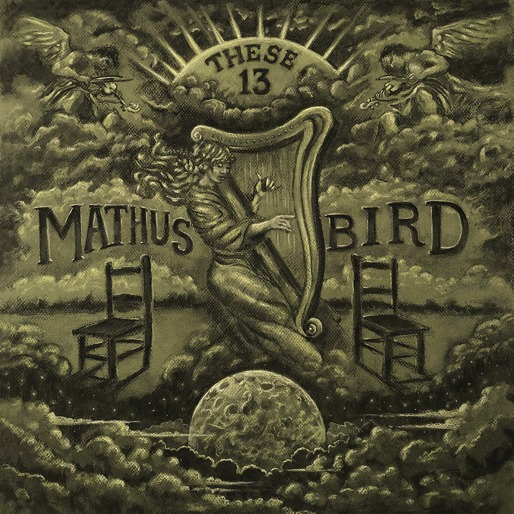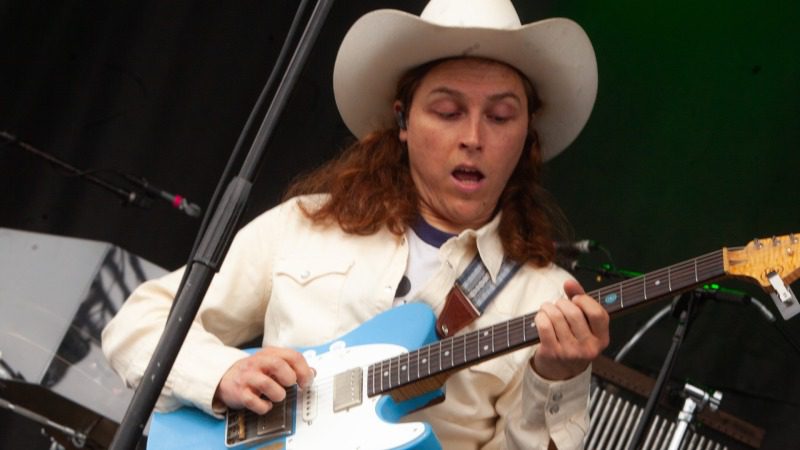As origin stories go, you’d be hard-pressed to invent one like this: Andrew Bird first met Jimbo Mathus in 1994 at a North Carolina folk festival, while Bird was working—and this is true—as a medieval fiddler at a Renaissance fair in Wisconsin. Mathus managed to see beyond the doublet and breeches to the keen musician within, and soon Bird was contributing to albums by Mathus’ band, Squirrel Nut Zippers, the jazz and swing revivalists best known for their 1996 song “Hell.”
This is not that. After each ventured off into the thick of their respective solo careers, Mathus and Bird have reconvened on These 13, a collection more deeply rooted in gospel and Appalachian folk than jazz or swing. The pair co-wrote all 13 tracks, which consist solely of their voices, Bird’s violin and Mathus’ guitar. Old folk tunes were often signifiers of careworn lives, and these songs are accordingly solemn: Mathus and Bird sing of the downhearted, the weary and the dispossessed on songs that could have easily come from the depths of the Great Depression, or been handed down from one generation to the next in an isolated fold in the mountains of some backcountry refuge.
Solemnity doesn’t preclude a spirited sensibility. The two-guys-and-a-microphone approach here shows a genuine musical affinity between the musicians. Mathus’ earthier voice contrasts well with Bird’s more refined vocals, and the guitar and violin interact like two sides of an engrossing conversation. Throughout These 13, Bird and Mathus sing and play together as if they’ve been doing it routinely over the past two decades, instead of not at all.
For all the vintage aesthetics, some of these songs are dismayingly up to date. Opener “Poor Lost Souls” juxtaposes the fantasy of Hollywood glitz and glamor with the reality of a California housing crisis that has left too many without a permanent place to live. Accompanied by strummed guitar and violin that alternates between delicate plucks and rawboned sawing, Mathus and Bird trade verses before singing together in harmony on the refrain.
Not everything on These 13 has such an air of urgency, though nothing here feels flippant. Quite a bit is dire, in fact. There’s a jilted would-be lover ready to take drastic action on “Burn the Honkey Tonk,” where Bird’s voice echoes in a well of reverb over spare guitar strumming and mandolin. Elsewhere, an obsessive fan pleads for a moment of acknowledgement from among a scrum of admirers on “Red Velvet Rope,” a prodigal rake has come home for one last hand on “Jack O’Diamonds,” and a war-weary soul is ready for his final rest on the haunting elegy “Stonewall (1863).” Throughout, Bird and Mathus span a wide swath of human experience, and the practiced ease with which they do so, and their easy rapport, suggest that maybe they ought to do this more often.
Eric R. Danton has been contributing to Paste since 2013, and writing about music and pop culture for longer than he cares to admit. Follow him on Twitter or visit his website.




